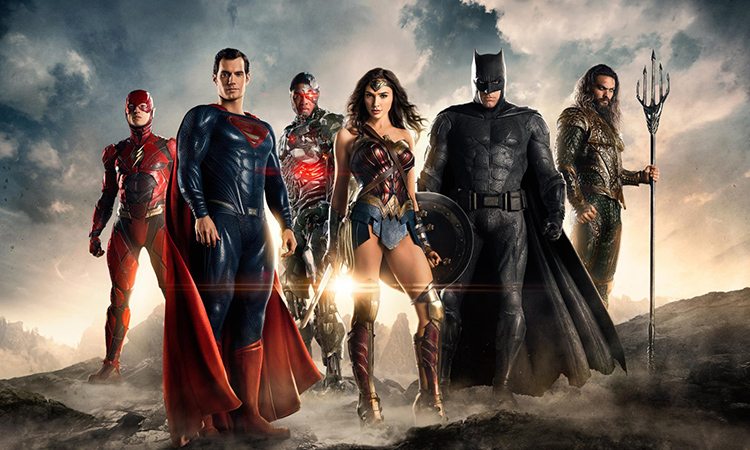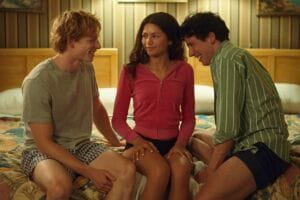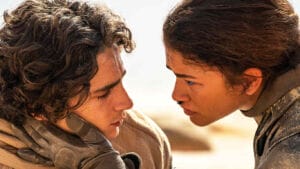Ah, “Justice League.” Expectations were working against you from the start. You’re the illegitimate spawn of two vastly different directors, the younger sibling of four films: three disappointments and one-star child born the same year as you. Few expect greatness from you, and yet many will be disappointed if you crash and burn. From this purgatory of anticipation and hesitation, what can you offer the world?
DC’s universe has been flailing from the start, largely because they hire the wrong filmmakers. The director/writer team of Zack Snyder and David Goyer—who together are like tasting orange juice and toothpaste while pouring lemon juice into a paper cut, in that they’re both bad on their own—kicked things off with the joyless affairs of “Man of Steel” and “Batman v Superman.” “Suicide Squad” tripped over itself repeatedly. “Wonder Woman” changed things up with a refreshing blast of feminism and humanism.
And now “Justice League” brings them all together! Zack Snyder also returns to the director’s chair, joined by Chris Terrio, his writing partner from “Batman v Superman”—so it’s not the happiest of reunions. But there’s a twist: due to an unfortunate family tragedy that led to Snyder’s early departure from the project, “The Avengers” director Joss Whedon was brought in to fill in the blanks (and create blanks where Snyder got too bombastic).
Whedon and Snyder’s artistic goals couldn’t be more adverse. Whedon infuses everything he does with lightheartedness; Snyder is keen on sapping any potential heart out of his films. The fusion of these visions is an exercise in missed opportunities to commit to either. Snyder is interested in darkness; Whedon in how light shines through: the film’s style is smoothed out to avoid palpable contrast between the two, but the resulting tone is nebulous.
The screenplay—a joint effort between Chris Terrio and Joss Whedon, based on Terrio and Snyder’s story—is nearly insufferable, and Whedon is likely to thank for that ‘nearly’. The story is drastically simpler than the unnecessary convolution of “Batman v Superman” and it’s unclear who trimmed the narrative fat, but the dialogue is clearly a fight between Terrio’s heavy hand and Whedon’s light touch.
Terrio insists on ending scenes like he’s getting the last word in an argument: godawful one-liners abound, landing with overwrought thuds in laughable attempts at gravitas and social commentary. Whedon uses dialogue like seasoning, spicing up scenes with wit or character-building moments. The screenplay alternates between punching you in the face and kissing your cheek.
Whedon doesn’t function like a magic wand, though. He rids the film of Snyder’s coolest contribution—the score by Junkie XL—and replaces it with generic brand Danny Elfman. There’s a bit of latent misogyny directed at Wonder Woman (who maintains the goodwill from her great debut), and given his history with the character, there’s a chance that stemmed from Whedon.
Those most excited for “Justice League” are expecting team interplay and solid action, which the movie delivers intermittently. If you’re a fan of Snyder’s affinity for bodies slamming into hard surfaces, there’s a lot to love here. Otherwise, the action scenes range from oddly stagnant to chaotic, visual jargon. Thankfully, enjoyable character moments serve as reprieve.
These primarily come courtesy of Aquaman and The Flash. Jason Momoa and Ezra Miller portray these newcomers with laudable aplomb. This film’s version of Aquaman is the polar opposite of the milquetoast Atlantean of the early comics, and Momoa sinks his teeth into the opportunity to differentiate. Miller’s Flash is far and away the best thing about “Justice League”: his endearing social awkwardness, immaculate line delivery, and physically humorous performance will win hearts over tenfold.
Other characters fare far, far worse. Steppenwolf is the most insipid villain in a genre that could practically hold a pageant for boring baddies. His motive is to destroy the world, his character is that he wants to destroy the world, his backstory is that he already tried to destroy the world, and his costume design is ‘destroying the world is in vogue this season’. Nothing about him or his army of Cronenberg flies sticks or scares.
The franchise’s continued misunderstanding of Superman numbs the mind. An early sight gag compares the DCEU’s Superman to David Bowie and Prince, which feels remarkably disingenuous. The franchise utterly failed at making him an inspiring figure. Conflating this Superman with the beating heart of heroism is a faulty foundation: the more “Justice League” has to do with him, the dumber it gets.
Despite its flaws and in spite of its successes, the dual vision of “Justice League” offers neither the best nor worst of either director. Perhaps go in thinking of it as a preamble to The Flash’s eventual solo film.
★★½ (2.5 out of 5)




